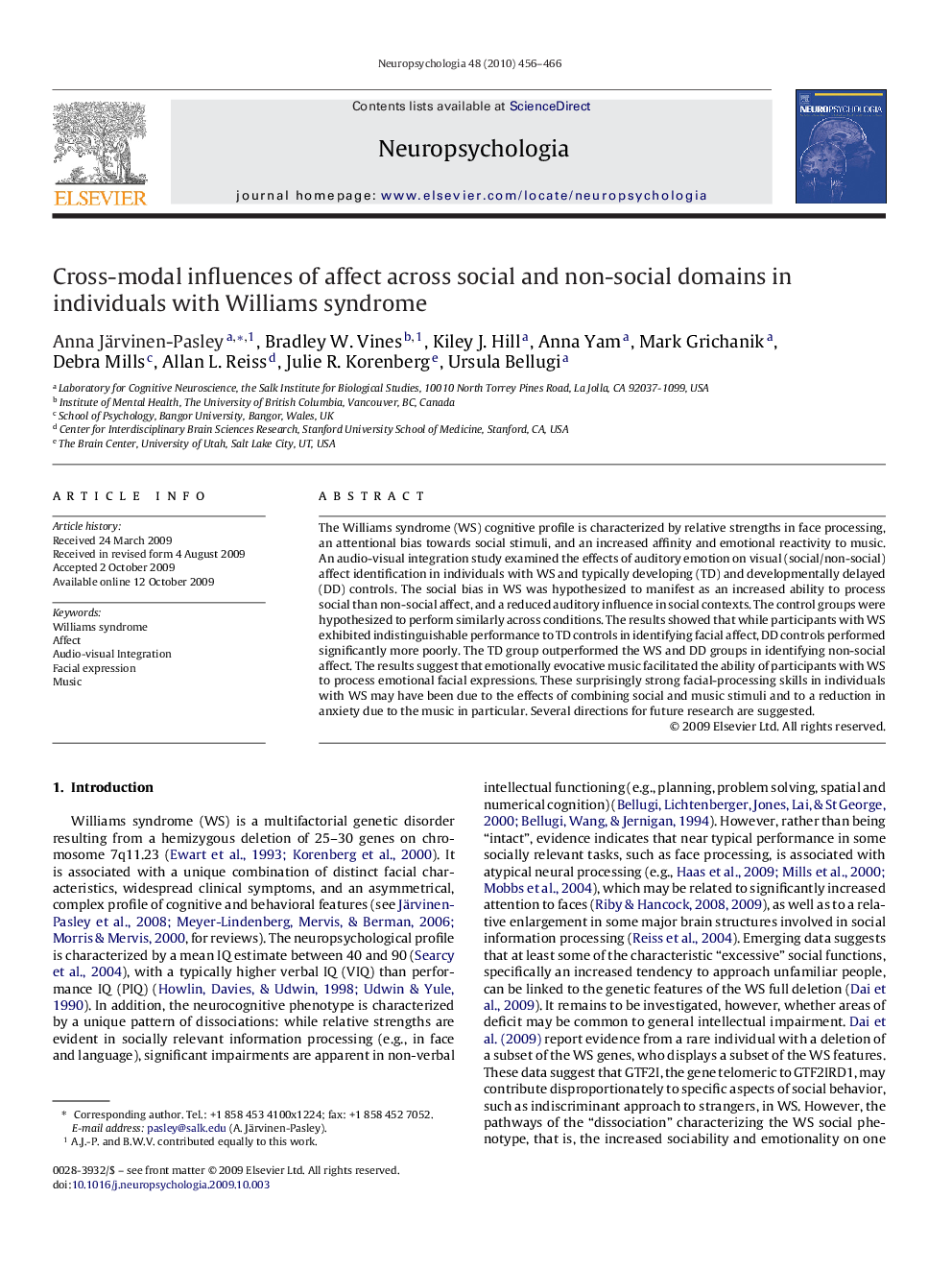| Article ID | Journal | Published Year | Pages | File Type |
|---|---|---|---|---|
| 10466442 | Neuropsychologia | 2010 | 11 Pages |
Abstract
The Williams syndrome (WS) cognitive profile is characterized by relative strengths in face processing, an attentional bias towards social stimuli, and an increased affinity and emotional reactivity to music. An audio-visual integration study examined the effects of auditory emotion on visual (social/non-social) affect identification in individuals with WS and typically developing (TD) and developmentally delayed (DD) controls. The social bias in WS was hypothesized to manifest as an increased ability to process social than non-social affect, and a reduced auditory influence in social contexts. The control groups were hypothesized to perform similarly across conditions. The results showed that while participants with WS exhibited indistinguishable performance to TD controls in identifying facial affect, DD controls performed significantly more poorly. The TD group outperformed the WS and DD groups in identifying non-social affect. The results suggest that emotionally evocative music facilitated the ability of participants with WS to process emotional facial expressions. These surprisingly strong facial-processing skills in individuals with WS may have been due to the effects of combining social and music stimuli and to a reduction in anxiety due to the music in particular. Several directions for future research are suggested.
Related Topics
Life Sciences
Neuroscience
Behavioral Neuroscience
Authors
Anna Järvinen-Pasley, Bradley W. Vines, Kiley J. Hill, Anna Yam, Mark Grichanik, Debra Mills, Allan L. Reiss, Julie R. Korenberg, Ursula Bellugi,
